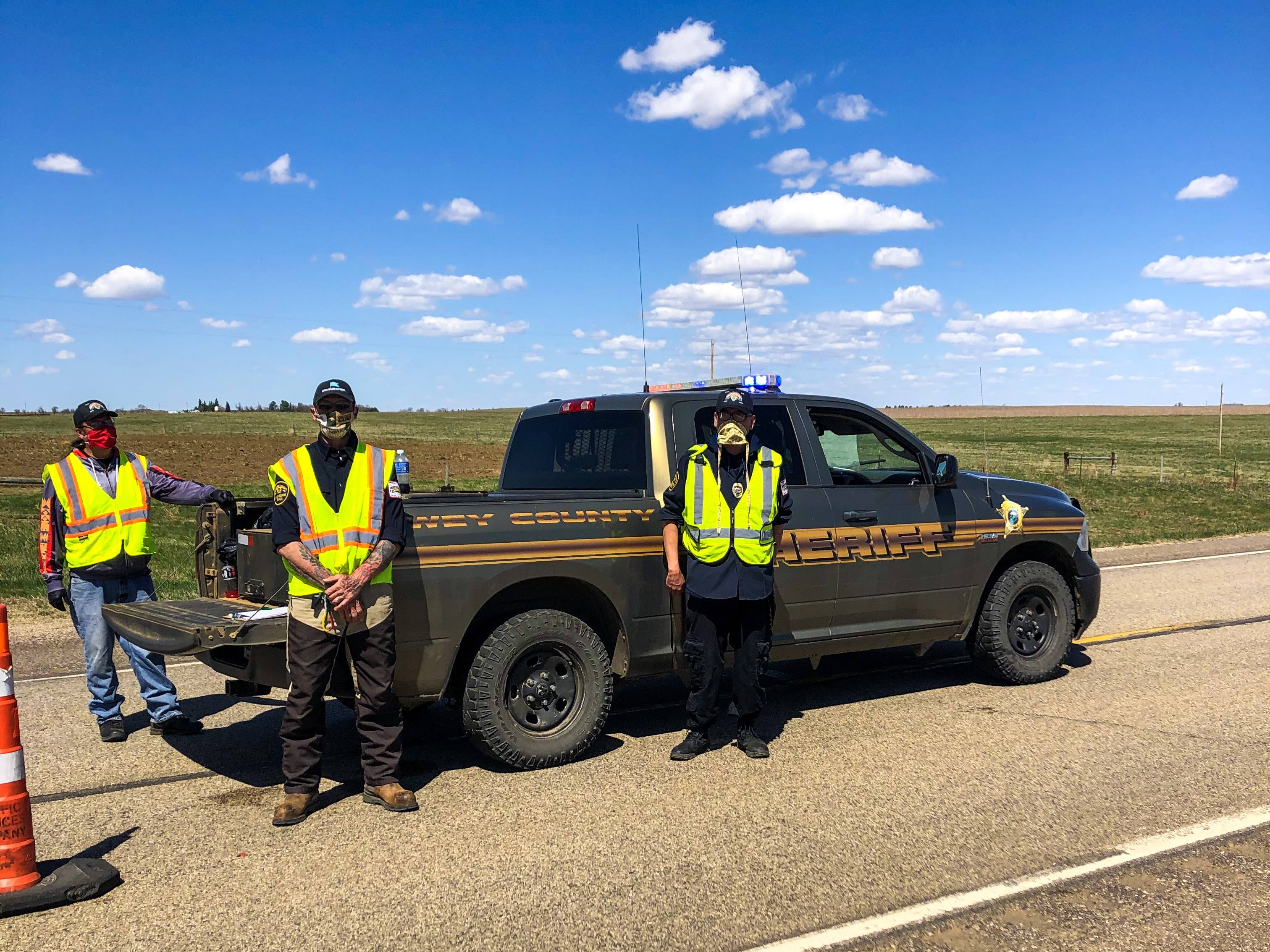Indianz.Com > News > Tim Giago: Republican governor fiddles while South Dakota burns
Notes from Indian Country
Noem fiddles while South Dakota burns
Monday, November 2, 2020
My 6th grade teacher at the Holy Rosary Indian Mission Boarding School was named Mr. Fagan. He was a young man studying to become a Jesuit Priest and he came to South Dakota from back East to indoctrinate and teach at the boarding school.
One Monday morning we filed into our classroom and saw, in large white letters on the blackboard, a note that read, “An ounce of prevention is worth a pound of cure.”
Mr. Fagan made sure we were all seated at our desks before he pointed at the blackboard and explained to us why he had written that message there. He explained to us that there was a pandemic spreading across Indian Country. It was a deadly disease called tuberculosis or TB. He told us it was so bad in South Dakota that they had turned the old boarding school in Rapid City into a TB ward they now called the Sioux Sanitarium.
That memory comes back to me now because those words, “An ounce of prevention is worth a pound of cure,” would be totally appropriate to use when discussing the pandemic, Covid-19, that is now ravaging America and doing double damage to the Indian reservations, much like the TB of the 1930s and 1940s.

The reservations are still suffering under this disease and it looks like there will be a long fight ahead, but just as they beat the TB epidemic, they will beat this virus. The tribal people are strong, resilient and careful. And so while Noem has allowed the epidemic to make South Dakota number one in the Nation by not practicing the simple guidelines the Tribes are using, “An Ounce of Prevention is Worth a Pound of Cure.” In her carefree way, as Noem gallivants across America campaigning for Trump, the death rates in her state continue to rocket. In Trump she hooked her future to a falling star and will soon feel the crash.Why is it permissible for some to limit travel within their territory, but not acceptable for sovereign Indian nations to do the same? Marcella LeBeau, the 100yo Lakota veteran who served in World War II, defends #Coronavirus checkpoints. @govkristinoem https://t.co/hXNydnQZhS
— indianz.com (@indianz) May 11, 2020
Tim Giago, Publisher of Native Sun News Today, can be reached at editor@nsweekly.com. Tim was a Nieman Fellow at Harvard with the Class of 1991. He wrote this article several years ago and decided it was time to bring it forward again at this time
Note: Content © Tim Giago
Search
Filed Under
Tags
More Headlines
‘Our hearts are full’: Native Organizers Alliance welcomes commutation of sentence for Leonard Peltier
‘I am beyond words’: Deb Haaland welcomes clemency for Leonard Peltier
NDN Collective welcomes grant of executive clemency for Leonard Peltier
Executive Grant of Clemency: Leonard Peltier
VIDEO: Navajo Nation President Buu Nygren #DC #HonorTheTreaties
VIDEO: Navajo Nation Council Speaker Crystalyne Curley #DC #HonorTheTreaties
‘A lot of big plans’: Tribal leaders ready to get to work with new presidential administration
Chuck Hoskin: Cherokee Nation empowers culture of entrepreneurship
Native America Calling: Accounting for those who never made it home from Indian Boarding Schools
U.S. Supreme Court upholds federal law banning TikTok
Native America Calling: Native in the Spotlight with Ted Nolan
‘State and tribal relations in North Dakota have not always been great’
Native America Calling: Preparing for Donald Trump’s ‘first day in office’
Cronkite News: ‘We’re never going to go away’
Tribal justice office gains new leader amid big changes in Washington
More Headlines
‘I am beyond words’: Deb Haaland welcomes clemency for Leonard Peltier
NDN Collective welcomes grant of executive clemency for Leonard Peltier
Executive Grant of Clemency: Leonard Peltier
VIDEO: Navajo Nation President Buu Nygren #DC #HonorTheTreaties
VIDEO: Navajo Nation Council Speaker Crystalyne Curley #DC #HonorTheTreaties
‘A lot of big plans’: Tribal leaders ready to get to work with new presidential administration
Chuck Hoskin: Cherokee Nation empowers culture of entrepreneurship
Native America Calling: Accounting for those who never made it home from Indian Boarding Schools
U.S. Supreme Court upholds federal law banning TikTok
Native America Calling: Native in the Spotlight with Ted Nolan
‘State and tribal relations in North Dakota have not always been great’
Native America Calling: Preparing for Donald Trump’s ‘first day in office’
Cronkite News: ‘We’re never going to go away’
Tribal justice office gains new leader amid big changes in Washington
More Headlines